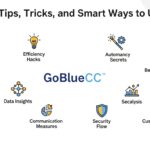In the ever-evolving landscape of internet subcultures, memes have become more than just humor—they’re reflections of societal behaviors, digital archetypes, and, sometimes, deep-rooted critiques of modern culture. One such term that has gained traction across platforms like Reddit, Twitter (X), and 4chan is “coomersu.” But what exactly is coomersu? Where did it come from, and why is it important to understand it in the digital age?
This article dives deep into the origins, meanings, social implications, and ongoing discourse surrounding the term “coomersu.” Whether you’ve come across it online or are just hearing it for the first time, this comprehensive breakdown will help you grasp its relevance and controversy.
What is Coomersu?
Coomersu is a portmanteau of the words “coomer” and “consumer.” It’s a satirical term often used to describe individuals—primarily men—who are depicted as being obsessed with pop culture, merchandise, and adult content, sometimes to the point of self-destructive consumerism and escapism.
The coomersu meme criticizes those who indulge in media (especially anime, video games, and other “nerdy” franchises) not just casually, but in a way that becomes central to their identity, behavior, and emotional satisfaction. It portrays a character who is:
-
Addicted to cooming (a slang term derived from the sound of ejaculation, often used derogatorily online to describe excessive consumption of pornography),
-
Obsessed with consumption, particularly of branded or franchise-based merchandise (figurines, posters, collectibles, and so on),
-
Detached from real-life responsibilities, relationships, and self-growth.
The coomersu meme often manifests as grotesque or exaggerated illustrations meant to mock or critique consumerism blended with hypersexual online behavior.
The Origins of Coomersu
The term coomersu didn’t spring out of nowhere. It has its roots in two separate but interconnected internet meme archetypes:
1. Coomer
The “coomer” meme originated in 2019, depicting a poorly drawn man with greasy hair, dark circles, and a vacant expression. It was used to satirize individuals who were allegedly addicted to pornography or chronic masturbation. While it started as humor, it quickly took on a more pointed commentary about the digital age’s impact on male sexuality and mental health.
2. Doomer & Wojak Lore
Coomer was part of the larger “Wojak” universe—an expansive meme ecosystem where various characters (like Doomer, Bloomer, and Zoomer) represent emotional or social archetypes. These memes are layered with irony, self-awareness, and, sometimes, cruel stereotyping.
The “coomersu” meme evolved from these, especially as online users began to criticize the modern consumer of niche, commercialized content. Thus, coomersu became the mascot for hyper-consumption and compulsive behavior in fandom and adult entertainment spaces.
Coomersu as a Critique of Modern Consumerism
At its core, the coomersu meme is a social commentary. It reflects an underlying criticism of how modern capitalism, digital content saturation, and parasocial relationships have shaped behavior—particularly among younger males.
Key Themes Embedded in Coomersu:
-
Overindulgence: The meme implies excessive consumption of media and content—especially things like hentai, anime, and fan merchandise—not for enjoyment, but as a way to cope with loneliness, boredom, or existential dissatisfaction.
-
Identity Through Brands: Coomersu is often depicted as someone whose identity is wrapped up in the brands they consume—like becoming emotionally attached to characters or narratives from franchises such as Marvel, anime series, or adult content platforms.
-
Online Isolation: With the rise of virtual spaces, the coomersu character symbolizes individuals who have retreated from real-world interactions into curated, fictional worlds.
-
Addiction and Escapism: Whether it’s binge-watching, gaming marathons, or endless scrolling on explicit content sites, the meme calls attention to digital addiction and escapism.
Why Is “Coomersu” Controversial?
Though it started as a meme, “coomersu” has faced backlash for various reasons:
-
Shaming & Stigmatization: Critics argue that the term unfairly targets introverted or socially awkward individuals, particularly those who find comfort in media that mainstream society may dismiss.
-
Toxic Masculinity: The meme often intersects with harsh portrayals of men’s mental health issues, using humor to downplay genuine struggles like porn addiction, loneliness, or social anxiety.
-
Misogyny and Gatekeeping: Like many internet memes rooted in niche forums, coomersu can sometimes be weaponized in toxic, misogynistic spaces where fandom is policed or mocked harshly.
Despite these controversies, the meme remains in circulation, frequently updated and reposted as commentary evolves.
Coomersu in Today’s Culture
As of 2025, the coomersu meme continues to pop up across image boards, Twitter threads, and YouTube essays that explore themes like digital minimalism, fandom culture, and the psychological effects of internet dependency.
Some creators have even begun to reclaim or reinterpret the meme. For example:
-
YouTube commentators use the term coomersu to reflect on their own past obsessions and paths to balance.
-
Artists draw alternate versions of the coomersu character, exploring what “healing” or “transformation” could look like.
-
Self-help influencers leverage the coomersu archetype to promote dopamine detoxes, nofap movements, and minimalist lifestyles.
In this way, coomersu is no longer just a punchline—it has become a cultural mirror, asking us all to look inward.
How to Avoid Becoming a “Coomersu” (Or At Least Live More Intentionally)
Whether or not you identify with the coomersu stereotype, the deeper message remains important: Are we consuming intentionally, or are we escaping?
Here are a few mindful tips inspired by the coomersu discourse:
-
Set Boundaries with Screen Time: Limit how often and how long you engage with media or explicit content.
-
Pursue Offline Hobbies: Explore things that don’t revolve around screens—reading, hiking, journaling, cooking.
-
Develop Emotional Awareness: Ask yourself why you gravitate toward certain media—what are you trying to feel or avoid?
-
Invest in Real Relationships: Build bonds with family, friends, or local communities, even if it’s hard at first.
-
Declutter Your Consumption: You don’t need every collectible, every stream, every season. Focus on quality, not quantity.
Conclusion
Coomersu isn’t just a meme—it’s a reflection of deeper conversations happening online about consumerism, loneliness, and our relationship with media. While it may be rooted in satire and exaggeration, it opens the door to real dialogue about how we live, what we consume, and why.
Whether you see yourself in the coomersu archetype or are simply fascinated by internet culture, one thing’s clear: understanding the concept helps us better navigate the digital world we’re all living in.
So next time you scroll past another meme or reach for that new collector’s item, ask yourself: is this joy, or is this just another moment?














